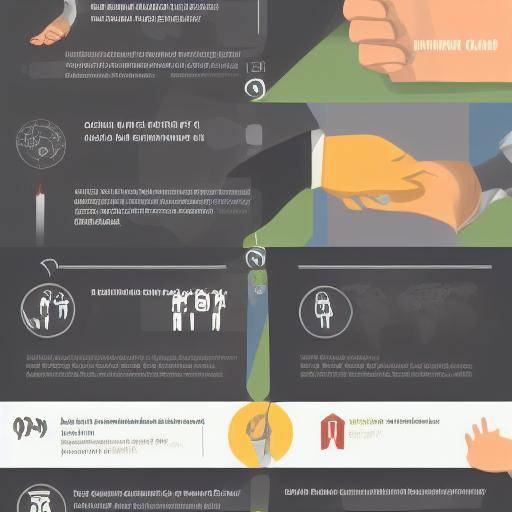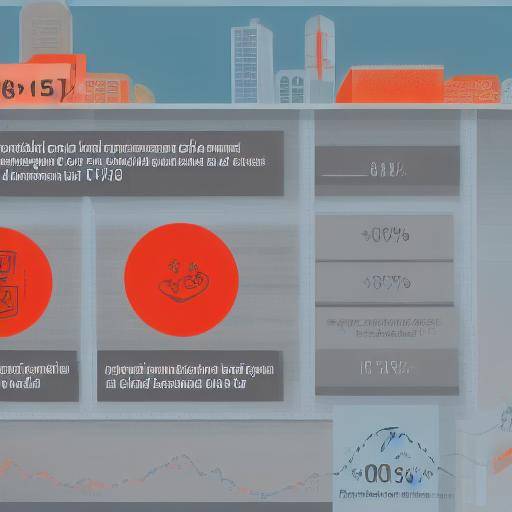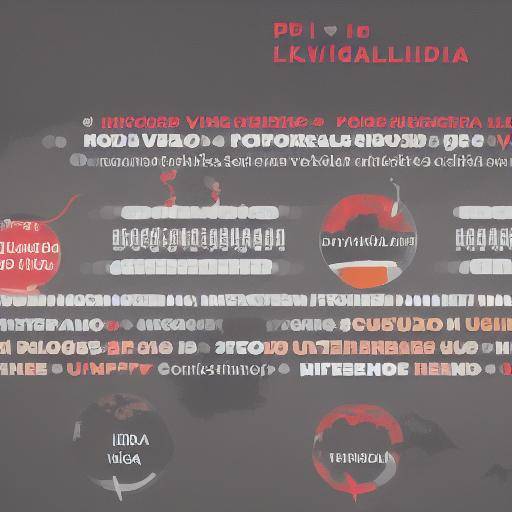
At present, credit score is a determining factor in borrowing, credit cards or other financial products. Its influence goes beyond the simple numbers, as it can affect from interest rates to credit approval. In this article, we will explore the impact of your credit score on the choice of credits, from its rating to its evaluation, providing a complete and detailed overview of this fundamental aspect of personal finance.
Importance of credit rating
The credit score, also known as the credit rating, is a numerical score that evaluates a person's credit history. This qualification reflects the ability of an individual to meet their financial obligations, being a tool used by financial entities to assess the risk of granting a credit.
Origin and evolution
The credit rating has its origins in the nineteenth century, when lenders used personal references to evaluate the solvency of their clients. Over time, this approach evolved into a more structured system, incorporating objective data and algorithms to calculate the credit rating. Currently, credit rating agencies such as Equifax, Experian and TransUnion are responsible for collecting financial information and assigning credit scores.
In-depth analysis
The credit score not only influences credit approval, but also impacts on interest rates offered. A good credit score may result in more favorable rates, while a poor score may limit credit options or result in higher rates. This aspect highlights the importance of maintaining a solid credit history and responsibility for debt management.
Comprehensive review
Credit ratings can also influence everyday aspects, such as housing lease or service hiring. Some tenants and even employers review the credit score to assess the financial reliability of candidates. This underlines the relevance of maintaining a good credit score, as it can impact not only on credit, but on various areas of everyday life.
Influence of credit score in credit choice
The credit score not only determines the approval or rejection of a credit, but can also influence the terms and conditions of the credit. We will then discuss how credit rating can influence the choice of credits and miscellaneous financial products.
Applications and best practices
When a credit is requested, the financial institution evaluates the applicant's credit score to determine the feasibility of the loan. A high score is usually associated with lower credit risk, which may result in lower interest rates and more favorable conditions. On the other hand, a low score can limit credit options and lead to higher interest rates.
Perspectives and opinions
Opinions about the influence of the credit score are varied. Some argue that credit rating is a fair tool that reflects the financial responsibility of individuals, while others criticize their disproportionate impact on certain groups of the population, such as young people or people with limited financial records.
Current and future trends
At present, the relevance of the credit score continues to increase, with greater awareness of its importance and implications. There is a trend towards greater transparency in credit assessment, as well as efforts by the authorities to promote financial education around credit rating.
Evaluation of credit options according to credit score
In assessing different credit options, credit score plays a key role in decision-making. We will thenanalyze how the credit score evaluation can influence the selection of credits and financial strategies.
Comparison and contrast
When comparing different credit offers, it is important to consider the impact of credit score on interest rates, timelines and conditions. A higher credit score can open the door to more favorable options, while a lower score can limit the available alternatives.
Similarities and differences
It is crucial to understand the similarities and differences in credit score evaluation between different types of credits, such as personal loans, mortgages or credit cards. Each type of credit may have specific requirements and considerations regarding credit rating.
Examples and scenarios
To present concrete examples of how credit score can influence credit selection is enlightening for readers. Showing real cases and hypothetical scenarios in which credit score plays a decisive role helps to understand their influence on financial decision-making.
Practical advice and useful recommendations
In considering your credit score in the choice of credits, it is essential to have practical advice and useful recommendations that guide financial decisions. We will then provide some clear guidelines and practical tips that readers can follow to maximize the impact of their credit score on credit selection.
Recommended steps
- Keep a history of timely payments: The credit score is greatly influenced by the punctuality in the payment of debts, so it is essential to pay in time to maintain a good score.
- Use your credit cards responsibly: Avoid carrying high balances on your credit cards and try to use them wisely, which can be positively reflected on your credit score.
- Periodically review your credit report: Being aware of your credit situation allows you to identify possible errors or inconsistencies that may affect your score.
- Limit credit requests: Avoid multiple credit requests in a short period of time, as this may negatively impact your credit score.
Detailed guidance
Providing detailed guidance on specific actions that readers can take to improve or maintain a good credit score is essential. In addition, justifying each recommendation with solid foundations and illustrative examples provides clarity and confidence in the applicability of the councils.
Industry perspectives and expert opinions
In order to enrich the understanding of the influence of credit score in the choice of credits, it is essential to collect industry perspectives and opinions from financial experts. We will then explore the perceptions and analysis of experts on this central issue.
Expert reflections
Interviewing finance experts or collecting statements and analysis of relevant figures within the credit industry can enrich content, provide credibility and complementary perspectives.
Trend and forecast analysis
The analysis of current trends and future forecasts related to credit score provides readers with a broad overview of the topic and its short- and long-term evolution.
Case studies and practical applications
Supporting discussion with detailed study cases and practical credit score applications in real situations is essential to illustrate their impact and application in everyday life. We will then present case studies that exemplify the influence of credit score in the choice of credits and financial products.
Impact on real life
Showing how the credit score has affected the financial experiences of real people, from obtaining a mortgage to requesting a credit card, provides clarity about its concrete and tangible influence.
Learning extracted
Analyzing the results obtained, lessons learned and successful strategies implemented allows readers to internalize the impact of credit score on the choice of credits and their long-term implications.
Future trends and predictions
Finally, it is important to explore emerging trends and future predictions related to credit score, offering a weighted vision of possible changes and developments in this crucial area of personal finance.
Substantial predictions
Based on current data and expert analysis, sharing well-founded predictions on how credit rating is expected to evolve and its impact on the choice of long-term credits adds valuable insights.
Challenges and opportunities
Exploring potential challenges and emerging opportunities related to credit score in the future gives readers a complete vision, highlighting potential areas of development and relevant changes in the financial landscape.
Conclusion
In short, the credit score has a significant influence on the choice of credits and financial products. From its rating to its evaluation, this essential aspect of personal finance impacts on the ability to obtain credits, interest rates offered and a variety of daily financial decisions. Maintaining a good credit score and understanding its influence on credit options is crucial to effectively manage financial health.
Frequently asked questions
What is the importance of maintaining a good credit score?
Maintaining a good credit score is crucial, as it may affect the ability to obtain credits, interest rates offered and other major financial decisions, such as housing lease or service hiring.
How can I improve my credit score if it is currently low?
To improve a low credit score, it is essential to make timely payments, use credit cards in a responsible way, review the credit report periodically and avoid multiple credit requests in a short period of time.
How does credit score affect interest rates offered in credits?
A good credit score is usually associated with lower interest rates, while a low score may result in higher rates due to the increased risk perceived by lenders.
Are credit scores used for decisions that go beyond credit?
Yes, credit scores can be considered for home lease decisions, hiring services, and can even influence certain aspects of the job, as some employers review the candidate's credit score.
How many times should I request my credit report?
It is recommended to review the credit report at least once a year to identify possible errors or inconsistencies and to take steps to correct them.
Is there any guarantee that improving my credit score will increase my credit options and interest rates?
While improving a credit score may increase credit options and result in lower interest rates, there is no absolute guarantee, as different lenders and financial entities may have varying policies and evaluation criteria.
With this extensive coverage of the importance of credit score in the choice of credits, how it influences financial decisions and best practices to handle it, readers will be better equipped to make informed and responsible financial decisions.






















































